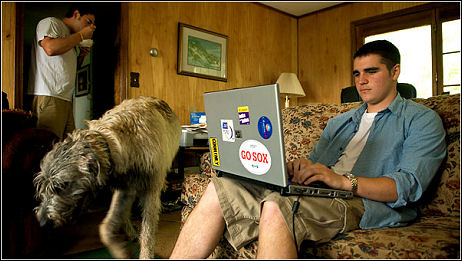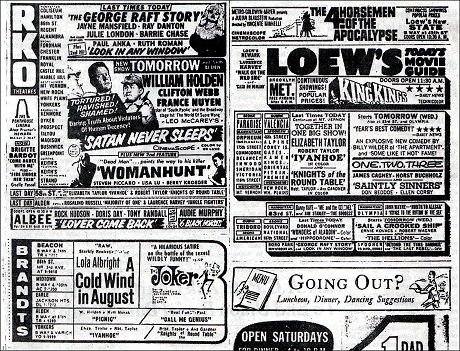The Toronto Star‘s Peter Howell has listed his ten favorite road movies. Here’s his list coupled with my critiques/reactions, followed by my own top ten:

(l. to r.) Randy Quaid, Otis Young and Jack Nicholson in Hal Ashby’s
The Last Detail.
Howell: 1. It Happened One Night (Wells reaction: Moderately appealing but Frank Capra is thoroughly over by any reasonable 21st Century standard); 2. One Week (Wells reaction: What?); 3. Two-Lane Blacktop (Wells reaction: I bought the Criterion DVD only to realize what a meandering and enervated thing it is, and seriously lacking in visual intrigue); 4. Y tu mama tambien (Wells reaction: perhaps not a top-tenner but a very fine film); 5. Thelma & Louise (Wells reaction: Driving your car over a cliff is a romantic-nihilist-crap finale, but if you’re going to use this don’t gussy it up with slow-mo photography and a personality clip reel); 6. Easy Rider (Wells reaction: definitely a top-tenner); 7. The Sure Thing (Wells reaction: A likable tits-and-zits ’80s movie, nothing more); 8. The Motorcycle Diaries (Wells reaction: 100% agreement); 9. Duel (Wells reaction: Not sprawling or meditative enough to qualify as real road movie); 10. The Cannonball Run (Wells reaction: pure garbage — a choice that insults and degrades the genre).
Wells: 1. The Grapes of Wrath (first because of the compassion and humanity and assertive political current); 2. The Wizard of Oz (the great-grandfather of all road movies); 3. Sideways (“I’m not drinkin’ fuckin’ Merlot!” — the kind of line that the Cannonball Run creators didn’t have the creative edge to even consider using); 4. Badlands (“This is the last time I get together with the hell-bent type”); 5. The Last Detail (again — compassion for sympathetic trapped characters, humor, melancholy resolution); 6. Apocalypse Now (a river is a road and vice versa). 7. Little Miss Sunshine (greatest 21st Century road movie thus far); 8. Easy Rider; 9. The Motorcycle Diaires. 10. Rain Man. Honorable Mentions: Planes Trains and Automobiles, Five Easy Pieces, Bring Me the Head of Alfredo Garcia, Y tu mama tambien, Road Trip, The Straight Story, Fandango.
The generic road-movie definition calls them stories that happen over the course of a journey. As Howell writes, “The characters in transit have to experience some change to their attitudes and outlook, or else the trip is wasted. They have to not just go somewhere, but more importantly, they have to arrive.” Agreed.
Howell’s kicker — “And if they can do it with a smile, all the better” — is where he and I differ. To hell with smiles as ends in themselves. Remember those smiley buttons from the ’80s? The face of emotional fascism. Smirks and frowns are far more trustworthy.





